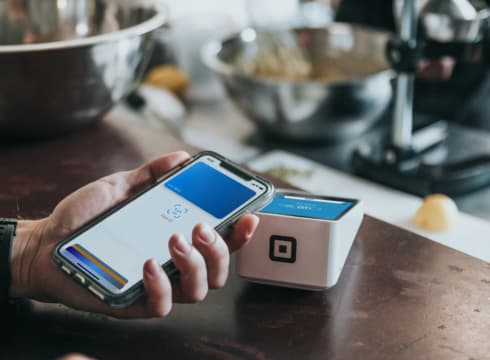These firms are likely to face stricter rules in terms of capitalisation norms and mandatory Know Your Customer (KYC) requirements
The central bank has not started any consultations with the industry so far
Pine Labs, Mswipe, Innoviti Payments, Paytm, BharatPe and others that offer retail PoS solutions likely to come under the ambit of the regulations
Inc42 Daily Brief
Stay Ahead With Daily News & Analysis on India’s Tech & Startup Economy
Pine Labs, Mswipe, Innoviti Payments, Paytm, BharatPe and other fintech companies that offer B2B payments solutions are likely to face stricter rules for capitalisation norms and mandatory Know Your Customer (KYC) requirements.
The Reserve Bank of India (RBI) is reportedly looking to tighten regulations for companies that offer solutions for point-of-sale terminals, QR code-based payments after finalising approvals for payment aggregator (PA) and payment gateways (PG).
However, the central bank has not started any consultations with fintech companies and the payments industry yet even though an ET report claims the policy direction has been conveyed. A discussion paper is expected to be circulated soon among the industry stakeholders.
Fintech startups that deal with PoS terminals, mobile payment terminals, QR code deployment at offline stores would come under the ambit of the regulations. The rules could disrupt QR code operations for fintech startups and companies such as BharatPe, mSwipe, Paytm, Amazon Pay, PhonePe, Google Pay and others. The RBI is said to be classifying these companies as offline payment aggregators.
As per the report, RBI wants to regulate merchant acquirers as they have the responsibility to onboard the right set of merchants and settle transactions in a systematic manner.
Last year, RBI governor Shaktikanta Das said that the online payment aggregator guidelines would be extended to retail and offline payments players as well.
Given that both payment aggregators have operational overlap in online and offline payments, Das had said that RBI’s regulations will apply to both service categories.
The payment aggregator framework was launched in 2020 and exclusively allowed RBI-approved companies to offer payment services to merchants. Under the norms, all payment gateway operators need to obtain a PA licence to acquire merchants and deploy digital payments solutions.
Over the past few months, fintech startups such as Enkash, Infibeam Avenues, Razorpay, Mswipe, Open, and Pine Labs received the green signal from the central bank to operate as online payment aggregators.
The digital payments gateway industry has grown manifold in India over the last few years. According to a report, the Indian payment gateways market was pegged at $1.2 Bn in 2021 and is projected to grow to $2.68 Bn by 2027.
Note: We at Inc42 take our ethics very seriously. More information about it can be found here.


